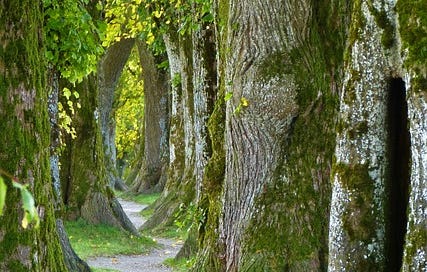Summer
by John Clare
Come we to the summer, to the summer we will come,
For the woods are full of bluebells and the hedges full of bloom,
And the crow is on the oak a-building of her nest,
And love is burning diamonds in my true lover's breast;
She sits beneath the whitethorn a-plaiting of her hair,
And I will to my true lover with a fond request repair;
I will look upon her face, I will in her beauty rest,
And lay my aching weariness upon her lovely breast.
The clock-a-clay is creeping on the open bloom of May,
The merry bee is trampling the pinky threads all day,
And the chaffinch it is brooding on its grey mossy nest
In the whitethorn bush where I will lean upon my lover's breast;
I'll lean upon her breast and I'll whisper in her ear
That I cannot get a wink o'sleep for thinking of my dear;
I hunger at my meat and I daily fade away
Like the hedge rose that is broken in the heat of the day.
"Summer" by John Clare stands out for vividly depicting the season. It is a testament to the poet's keen observations of nature. The poem's opening is a tribute to summer's warm, golden days, painting a landscape bathed in sunlight. Clare's imagery is detailed, creating a sense of tranquility and abundance.
He describes the fields as lush and green, filled with vibrant life. The poem paints a picture of a countryside in full bloom, with wildflowers dotting the meadows and hedgerows teeming with activity. Birds sing joyfully, their melodies mingling with the gentle hum of insects. The air is fragrant with blooming flowers and freshly cut hay.
Clare's 'Summer' poem is a sensory journey. It envelops the reader in the sounds and textures of the season. The rustling leaves, the distant stream murmurs, and the soft wind whispers all come alive, immersing readers in Clare's serene world, making them feel a part of the poem's landscape.
The poem reflects the harmony and balance in nature. Clare's observations of the cycles of growth and decay and how the earth rejuvenates itself underscore the theme. In this context, summer's abundance represents the interconnectedness of all living things, a theme echoed in the poem.
'Summer' by John Clare is a jubilant celebration of the season's beauty and vitality. Clare's evocative language and vivid descriptions paint a vibrant picture of summer, inviting the reader to revel in the natural world. The poem conveys a profound sense of peace and contentment, capturing the essence of summer in all its glory, making the audience feel the joy and appreciation of the season.






